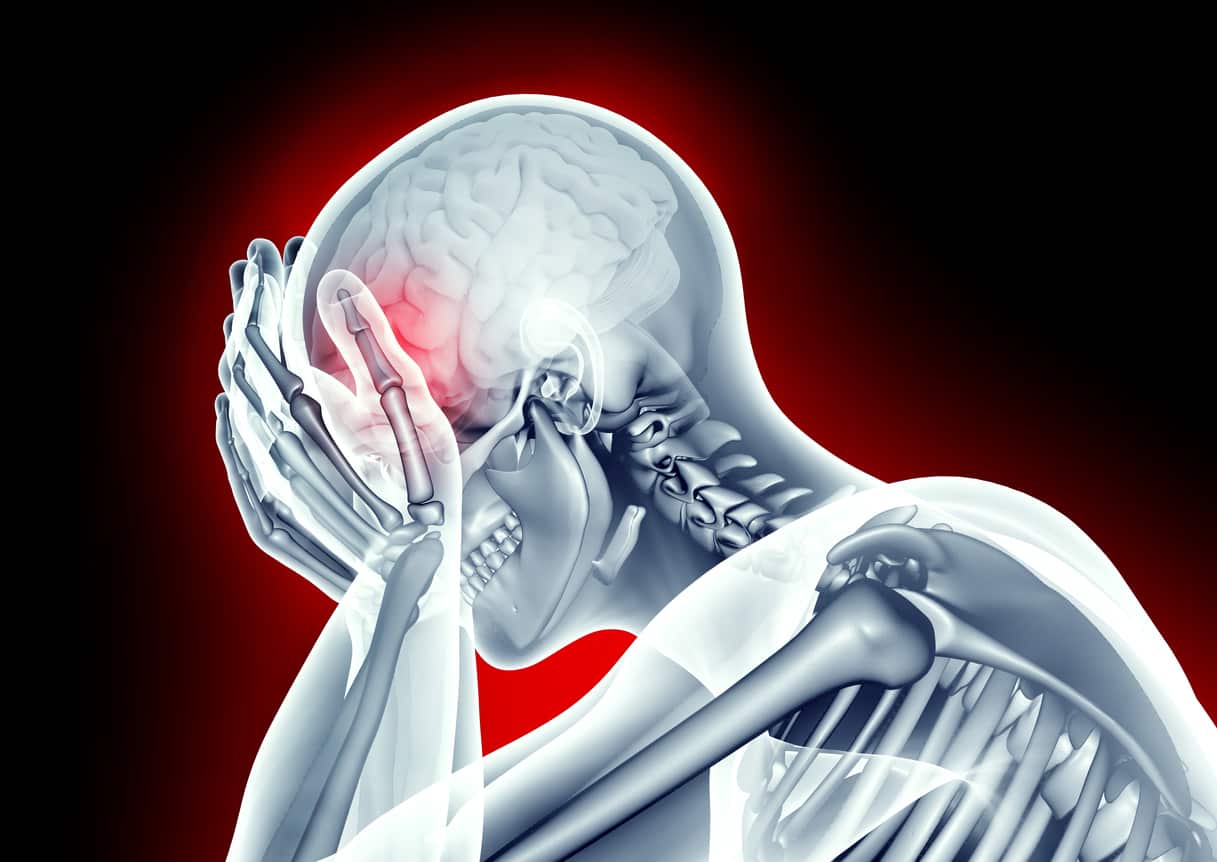Head injuries are a common outcome of car accidents.
Even a minor car accident can jerk you enough to cause neurological damage that is serious enough to cause debilitating effects. There are various types of neurological issues that can occur when you are involved in a car accident. There are three basic ways nerves can get damaged in an accident: by stretching, pressure, or severing of the nerve itself. According to Chicago car accident lawyer, car accidents can lead to neurological damage by:
Whiplash: a severe jerking motion of the neck and head can cause the nerves in the area to be pinched or to stretch
Lacerations: Any deep cuts on the skin can cause nerves in the area to get damaged.
Blunt force trauma: If you hit your arms, legs or head on a hard surface inside or outside the vehicle, it can compress the nerves
Treatment for nerve damage may include surgery, medication and physical therapy depending on the type of nerve damage you have suffered. Some common symptoms of nerve damage include:
- Partial or complete paralysis of limbs or appendages
- Muscle pain and weakness
- Uncontrolled movements of muscles or twitching
- Tingling or numbness
- Prickling sensation
- Increased sensitivity to hot and cold temperature
Apart from the conditions mentioned above, there are two specific neurological conditions that can occur after a car accident. These include:
Neuropathy
This can result from car accident-related trauma. Nerve damage or neuropathy occurs when physical trauma causes nerves to be partially or fully severed, compressed, crushed or stretched. Broken bones can also put damaging pressure on nerves and slipped disks can compress nerve fibers too. Neuropathy refers to the problem with peripheral nerves and not the central nervous system.
Radiculopathy
This condition occurs due to irritation or compression of a nerve as it exits the spinal column. Radiculopathy is not an exact condition, but rather a description of a general issue in which one or more nerves do not work properly. It can cause symptoms such as numbness, tingling, pain and weakness along the nerve. Some common types of radiculopathies are lumbar radiculopathy (in lower back), cervical radiculopathy (in the neck) and thoracic radiculopathy (in the spine). Thoracic radiculopathy, while less common is the most debilitating of all.
Radiculopathy usually occurs as a result of activities that put repetitive or excessive load on the spine. However, acute trauma from a car accident can also cause damage to the discs, ligaments, muscle and nerve traveling throughout the spine right from the neck to the lower back.
TBI Car Accident Injuries Explained
There are more than 200,000 TBI (Traumatic Brain Injury) cases each year in the United States. It is estimated that nearly half of these cases are the result of an auto accident.
What is TBI?
A Traumatic Brain Injury refers to brain dysfunction that has been caused by an outside force, generally by a violent blow or jolt to the head. A penetrating object to the skull can also be a cause. They are usually the result of a severe sports injury or auto accident.
A TBI is a complex brain injury that has a broad spectrum of symptoms. They do not heal like other types of injuries do and because no two brain injuries are alike, the resulting disabilities will be different with each case. Additionally, symptoms may present themselves early on, or may take a few days or even weeks.
Mild trauma to the brain may only cause a temporary dysfunction of the brain. However, more severe traumatic brain injuries can result in bruising, bleeding, torn tissue and other damage to the brain that can lead to long-term disabilities or even death.
In the case of a Chicago car accident, trauma to the brain occurs when the skull forcefully strikes an object like a windshield or dashboard. It can also happen in the case of serious whiplash. In either situation, when a person’s head is bounced around or hit in a car accident, the brain moves around inside the skull and becomes bruised and torn. The brain may continue to move even after the head has stopped and this may cause further bleeding and bruising.
Symptoms of TBI
As stated above, a TBI can have a wide variety of symptoms and they may appear right away or may take days or even weeks. However, according to the Mayo Clinic, some of the symptoms of a mild TBI may include:
- Loss of consciousness – for a few seconds or minutes
- Being dazed, disoriented or confused
- Headache
- Nausea or vomiting
- A feeling of fatigue or feeling tired
- A hard time sleeping
- Sleeping more than what is normal
- Loss of balance or dizziness
- Vision problems
- Ringing in the ears
- Sensitivity to light or sound
- Problems with memory or concentration
- Mood changes
- Feeling of depression or anxiety
In the case of a moderate to severe traumatic brain injury, the symptoms generally appear with the first few hours or days and these may include:
- Loss of consciousness up to several hours
- Persistent or worsening headache
- Constant vomiting or nausea
- Seizures or convulsions
- Dilation of one or both pupils
- Fluid draining from nose or ears
- Weakness or numbness in outer extremities
- Severe confusion
- Unusual behavior
- Coma
If you or a loved one have been involved in a car accident and have symptoms of a TBI, seek medical attention immediately.
Symptoms of Traumatic Brain Injury After an Auto Crash
Traumatic brain injury (TBI) may result from a blow, jolt, or bump to the head, or an object penetrating the skull. According to the Centers for Disease Control and Prevention (CDC), TBIs are responsible for nearly 30 percent of all injury deaths. Those who suffer from a TBI often face serious challenges. Some patients have to live with cognitive and motor disabilities, emotional problems, and long-term hearing and vision problems. While some people are able to recover from their injury, others are left disabled for a lifetime. Some remain in a vegetative state for the rest of their lives with no hope of recovery.
Causes of Traumatic Brain Injury
TBIs can result from anything from a motor vehicle accident to a fall. In many cases, the underlying cause is reckless, negligent, or even intentional conduct of another person. Causes of TBIs include:
- Falls – Slip and fall accidents can occur at construction sites due to defective scaffolding or ladders or due to a property owner’s failure to maintain the property. According to the CDC, more than 50 percent of TBIs sustained by children 14 years or younger involve falls. 50-70 percent of nursing home residents suffer a fall each year and 20 percent of these accidents result in serious injuries including TBIs.
- Motor vehicle accidents – If the victim’s head strikes an object or receives a sudden jolt from the impact, a TBI can occur.
- Struck against/by – Contact with objects such as a warehouse worker being hit by a falling container can cause TBI. Athletes are particularly prone to concussions, which can lead to permanent damage.
- Assaults – If a victim of assault is hit in the head or an object penetrates the skull, a TBI may result. Assault may occur due to poor security arrangements at shopping malls or stores.
- Birth injuries – TBI can result due to negligent use of birth assistive tools such as vacuum or forceps. Brain injuries sustained during birth can lead to cerebral palsy.
Symptoms of Traumatic Brain Injury
Symptoms of TBI depends on its severity. A patient may experience:
- loss of consciousness lasting from seconds to up to minutes
- feels confused, dazed, or disoriented
- vomiting or nausea
- headache
- dizziness or balance problems
- drowsiness or fatigue
- sleep problems
- ringing in the ears
- blurry vision
- light and sound sensitivity
- changes to the sense of smell
- memory issues
- depression or anxiety
- mood swings or changes
Recovering From a Serious Head Injury Suffered During a Car Accident
Head injuries can cause loss of mobility, cognitive issues, memory problems, and emotional problems. Head injuries are also a leading cause of death. When the head hits or is crushed against a hard surface, the soft jelly-like substance in the brain crashes against the skull, causing bleeding and bruising. The injuries can be so severe that the patient may never completely recover. In an effort to help car accident victims in all possible ways, our Chicago car accident attorney offers some advice to help you recover from a head injury.
Maintain a Journal
Some victims of head injury may not notice any symptoms initially, but may start experiencing serious symptoms after a few hours or even days. If you have suffered a head injury, keep detailed notes of your symptoms as it can help the doctor with diagnosis and proper treatment. If you decide to make a claim against the at-fault driver, these notes can your legal case.
Get Medical Attention, Even for Minor Injuries
Many head injury patients do not experience immediate symptoms and do not realize that they have suffered an injury until it is too late. It is important to get yourself examined to determine if you have suffered a concussion or any other type of head injury. Always get medical attention after hitting your head, even if there are no symptoms or the symptoms are mild.
Communication With the Insurance Company
Do not sign any documents from the insurance company until you have spoken to your Chicago car accident attorney. Insurance companies want to settle cases inexpensively and quickly; however, it may be hard to determine the extent or cost of injuries immediately. Head injuries may require long and extensive treatment, including a lifetime of care. Speak to a Chicago car accident attorney to determine the true value of your injuries.
Obtain Copies of Your Medical Records
Your medical records can help your attorney evaluate your case and help you get a fair settlement that covers your past and future treatment costs.
Take Care of Yourself
Follow your doctor’s advice carefully. Avoid playing sports or pursuing activities that increase the chances of suffering a secondary injury. Suffering another concussion while still healing from a head injury can be life threatening.
Brain Injury: A Serious Consequence of Many Chicago Car Accidents
A large percentage of brain injuries are caused by car accidents. Other causes include sports-related activities, falls, and workplace accidents. A trauma to the neck or head region can cause bruising, bleeding, swelling, or even a tear in the brain.
Types of Brain Injuries
- Open injury – A type of injury in which the skull is fractured. It is usually a result of an accident in which the head hits a hard surface.
- Closed injury – Does not involve a fracture, but can be more serious compared to an open injury, as it may involve dangerous blood clots or swelling. Serious brain injuries, both open and closed, can cause loss of consciousness, paralysis, and even death.
Signs and Symptoms of a Brain Injury
It might be difficult to ascertain whether or not a person has suffered a brain injury, especially if there are no visible signs of the injury. Here are some signs to look out for to assess if there has been a brain injury:
- difficulty remembering recent events and confusion
- severe headache
- dizziness and nausea
- sluggishness and unusual fatigue
- numbness or weakness on one side of the body
In case the victim of an accident shows any of the above mentioned symptoms, he or she should be given immediate medical attention. It is possible that the victim is feeling fine, but may still have suffered a brain injury. Visit the nearest emergency room and get a thorough medical evaluation done to rule out a brain injury.
Common Brain Injuries Suffered in Car Accidents
In car accidents, the most common brain injury that a person can sustain is concussion. The impact of the collision can cause the person’s brain to move back and forth with force and cause bleeding and bruising in some areas of the brain. In some cases, the force of the collision may cause tearing in the brain, and such injuries often cause permanent disability depending on the severity of the injury and the area in which it occurs. The trauma can also cause swelling in the brain, resulting in intra-cranial pressure, which is a serious condition and can cause severe disability and even death.
Seeking compensation for nerve damage after a car accident
If you have suffered some kind of nerve damage after a car accident, it is likely that you experiencing debilitating symptoms and that you need extensive treatment. If the accident was a result of another person’s negligence, contact a competent Chicago car accident lawyer to get help with your claim.












